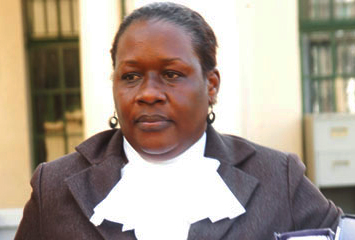
The High Court in Kampala has reaffirmed that property acquired during long-term cohabitation can be shared between partners upon separation, even in the absence of statutory recognition of their union, marking a significant development in Uganda’s property law.
The decision comes after the Court on Wednesday awarded a man at the centre of a feisty property dispute one-third share of a contested property in Ndejje, Makindye Ssabagabo that he had jointly developed with a partner during their 14-year cohabitation.
Delivering judgment in Civil Appeal No. 57 of 2022 on Wednesday, Lady Justice Elizabeth Jane Alividza ruled that both Mr Robert Kabuye and his former partner, Ms Teopista Nanyonga, had contributed to acquiring and developing a contested property.
The Court awarded Kabuye one-third of the property’s value while recognising that Nanyonga had made the larger financial input.
“This Court finds that both parties contributed to the development of the suit land and hence the Appellant is entitled to a third of the value of the suit land and developments,” Justice Alividza ruled.
“However, the rental property adjacent belongs to the Respondent [Ms Nanyonga] exclusively.”
The dispute stemmed from Civil Suit No. 54 of 2018, where Kabuye claimed he purchased the land in 2005, constructed five rooms, and allowed Nanyonga—who had a child from a previous relationship—to live there.
When he later married another woman, he asked her to vacate, but she refused, insisting the land was hers.
_____________________________________________________
Wider Implications for Divorce and Cohabiting Relationships
- Recognition of Contributions in Cohabitation
- Uganda does not legally recognize cohabitation as marriage, but this ruling shows courts will apply equity and property law to ensure fairness when long-term partners separate.
- Even non-financial contributions—such as domestic support, paying utilities, or indirect labor—can be considered valuable in property disputes.
- Precedent for Cohabitants’ Property Rights
- The Court cited previous cases (e.g., Batabara Bettu v. Mukama Fred and Kabogoza v. Banqi) to reinforce that property acquired during cohabitation can be shared, despite lack of statutory protection.
- This signals a growing judicial trend towards protecting vulnerable partners, usually women, but also men as in this case.
- Implications for Separation and Divorce Proceedings
- For married couples, matrimonial property law already governs distribution.
- For unmarried cohabitants, this ruling clarifies that courts will not allow one partner to walk away with everything, even if legal ownership documents favor them.
- It strengthens the principle that long-term relationships generate shared interests, regardless of formal marriage status.
______________________________________________________________
Nanyonga counterclaimed, accusing Kabuye of fraudulently registering the land in his name and seeking a declaration that she was the lawful owner.
At trial in 2022, the Magistrate’s Court found that both parties had contributed to the purchase, but that the developments were solely carried out by Nanyonga.
The Magistrate awarded Kabuye half the bare value of the land. Dissatisfied, he appealed.
On appeal, Justice Alividza re-examined the evidence, as required of a first appellate court, and noted inconsistencies in Kabuye’s documentation, including one forged agreement.
“What is clear from the evidence is that documentary evidence as regards ownership is not airtight. The Appellant’s claim is discredited by the various versions of the agreement,” she observed.
Still, the judge found that both parties had contributed, though unequally, and stressed that their long cohabitation was a key factor.
“It is not contested that the parties herein were staying together in cohabitation for over 10 years,” she said.
“Equity demands that property acquired during cohabitation belongs to both parties. The distribution may vary depending on the circumstances of each case.”
She noted that while Nanyonga financed most of the developments, including rental units, Kabuye also contributed through bills, making bricks, and offering support.
“The evidence indicates that the Respondent contributed more financially,” Justice Alividza said.
“There is also evidence that the Appellant supported his partner in form of providing transport and companionship. This contribution cannot be ignored.”
- In essence:
The ruling affirms that in Uganda, cohabitation—even without legal marriage—creates equitable property rights when both parties contribute. Courts will apply fairness principles to prevent exploitation, setting an important precedent for future disputes involving separation of cohabiting partners.
The Court set aside the lower ruling and directed that the land and developments be valued as of 2018, with Kabuye to receive one-third of that value. He will not benefit from later improvements.
Beyond the personal dispute, the judgment reinforces a growing judicial trend: even without marriage, cohabiting partners in Uganda can have enforceable property rights.
By applying principles of equity and trust law, courts are ensuring that contributions—financial or otherwise—are recognized.
Legal analysts say the ruling could embolden more cohabiting partners to seek redress in property disputes and adds weight to calls for legislation clarifying rights in non-marital unions.







